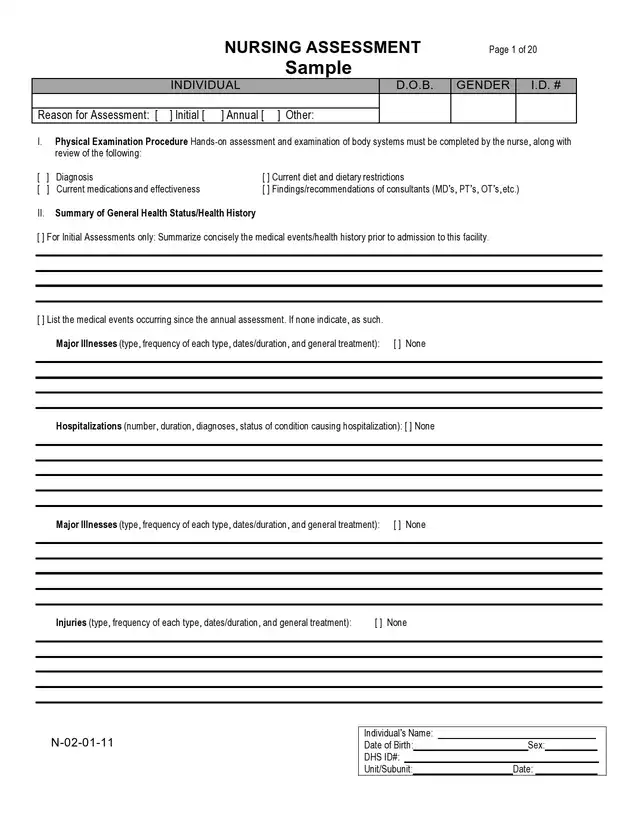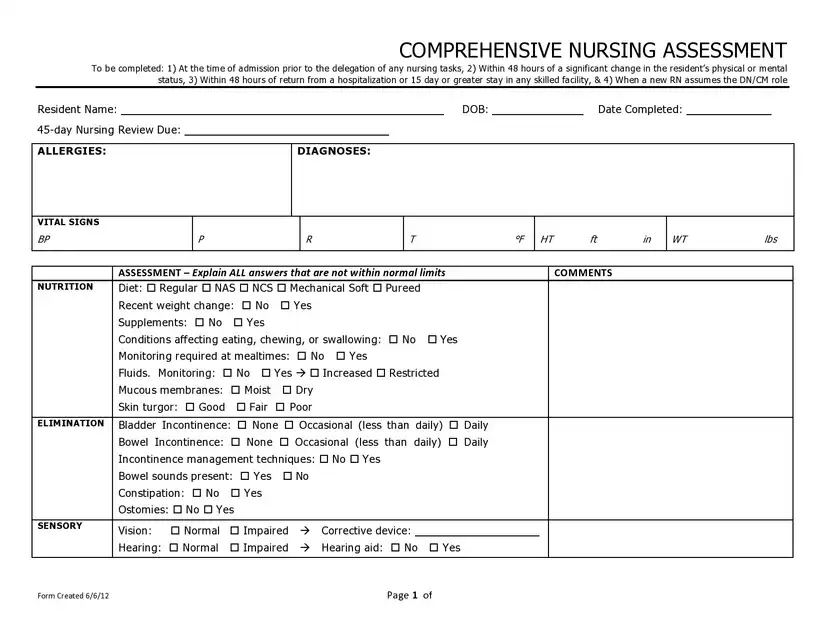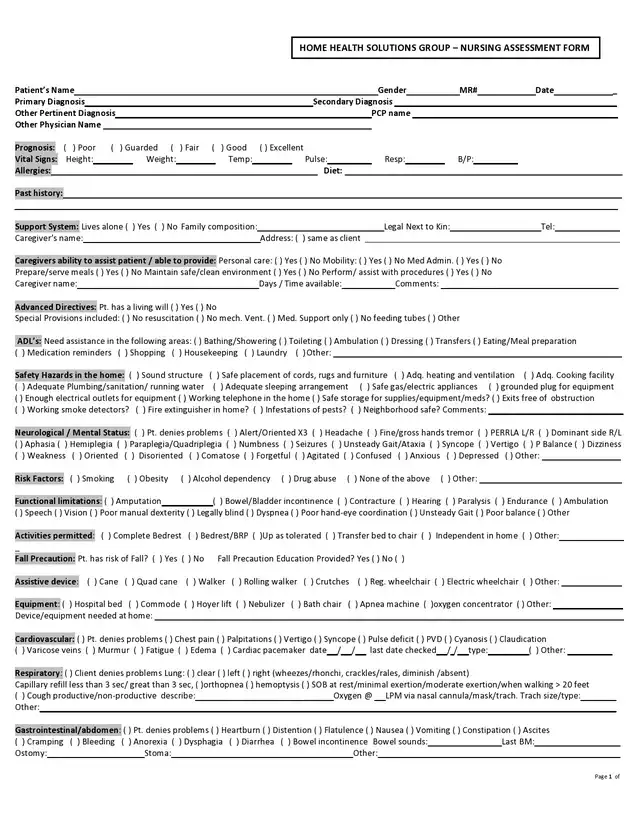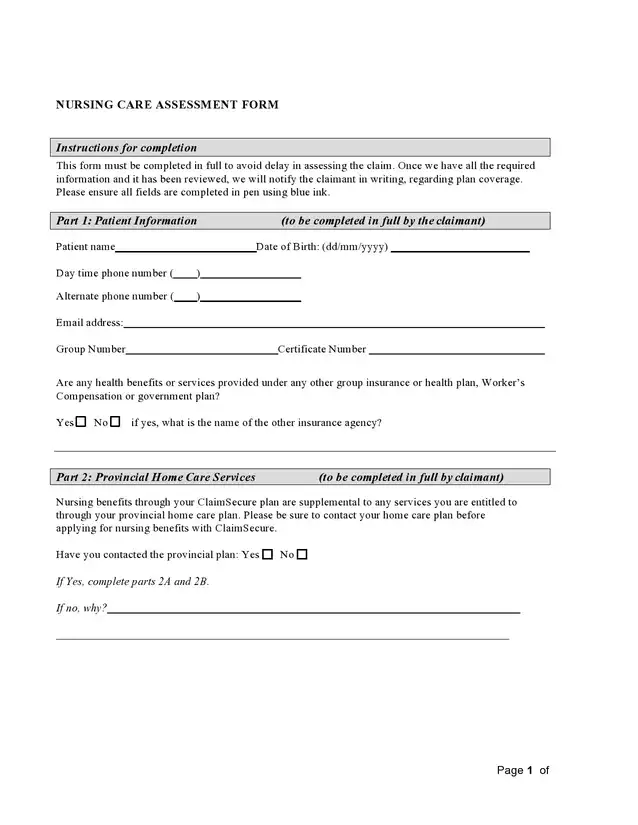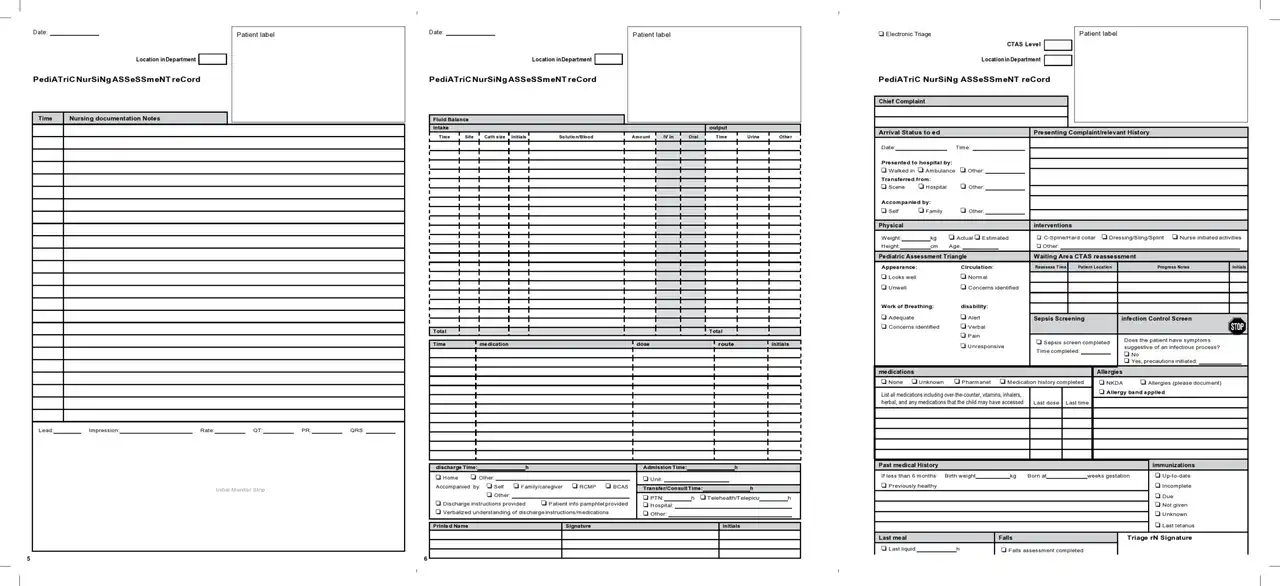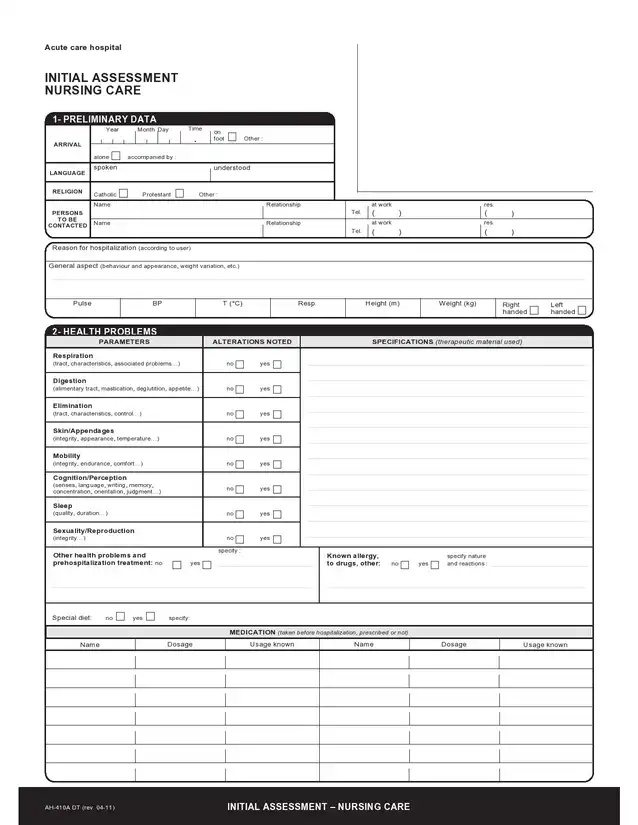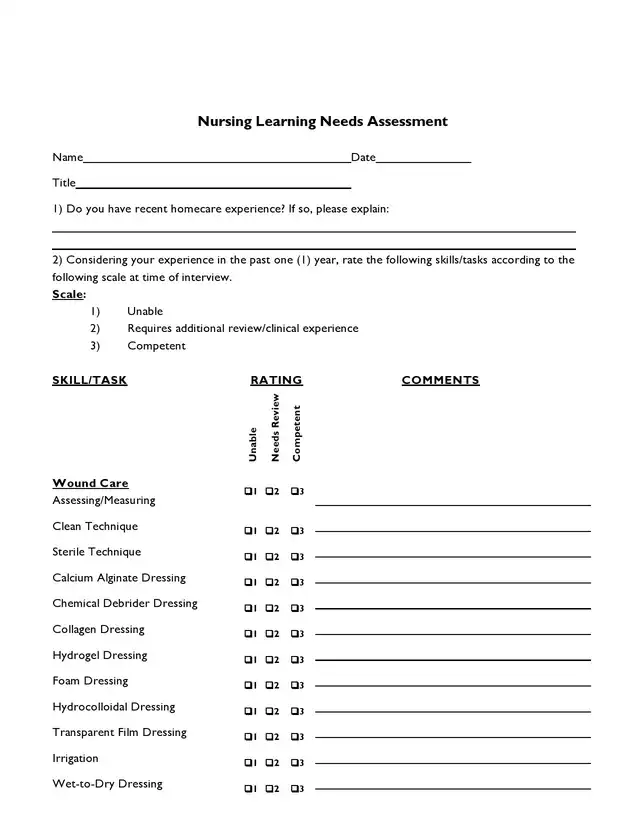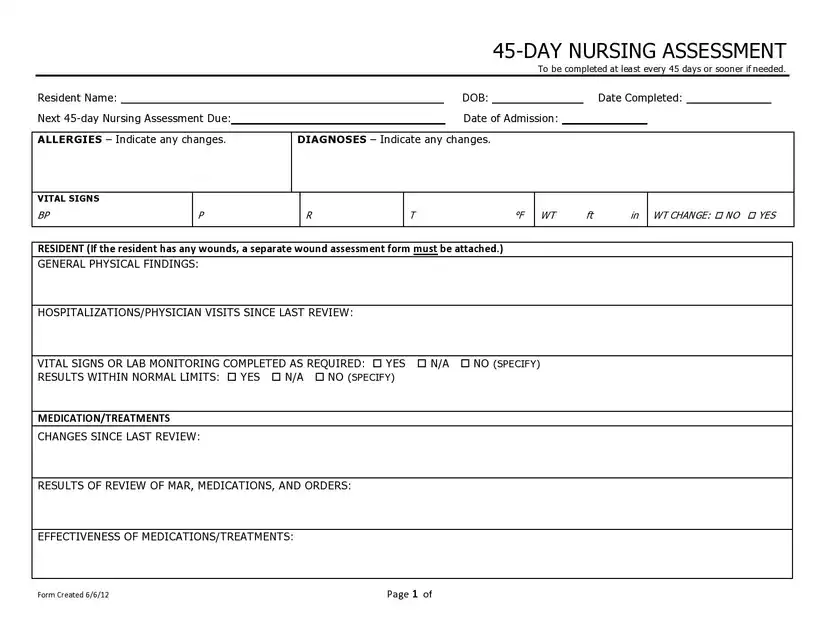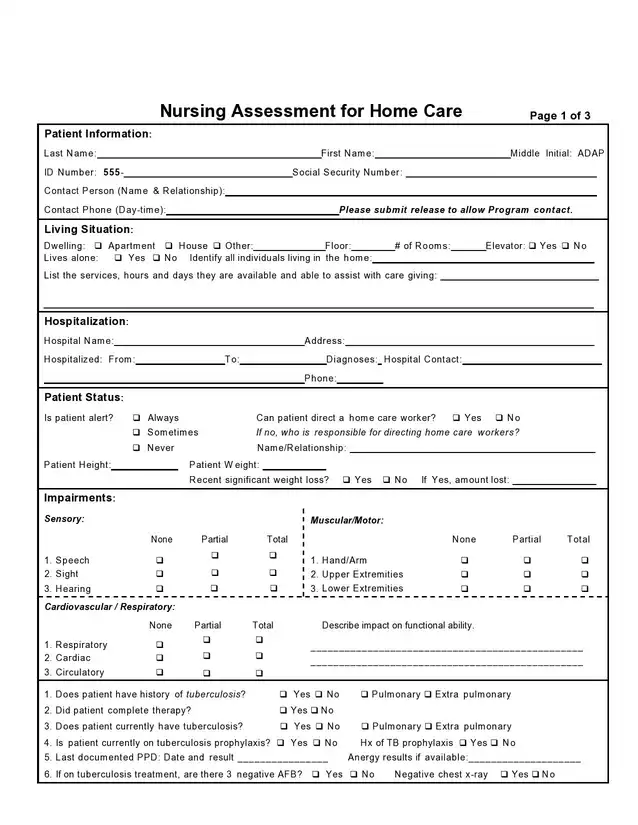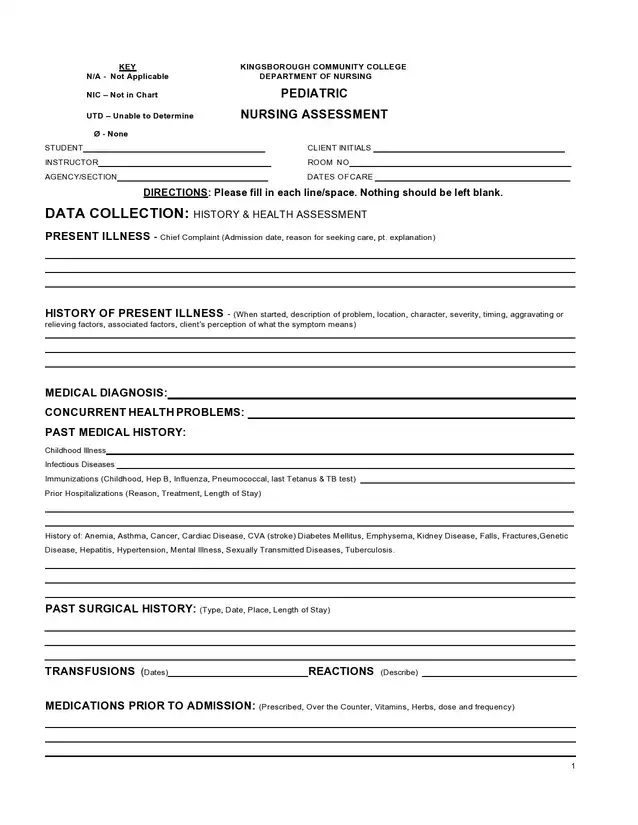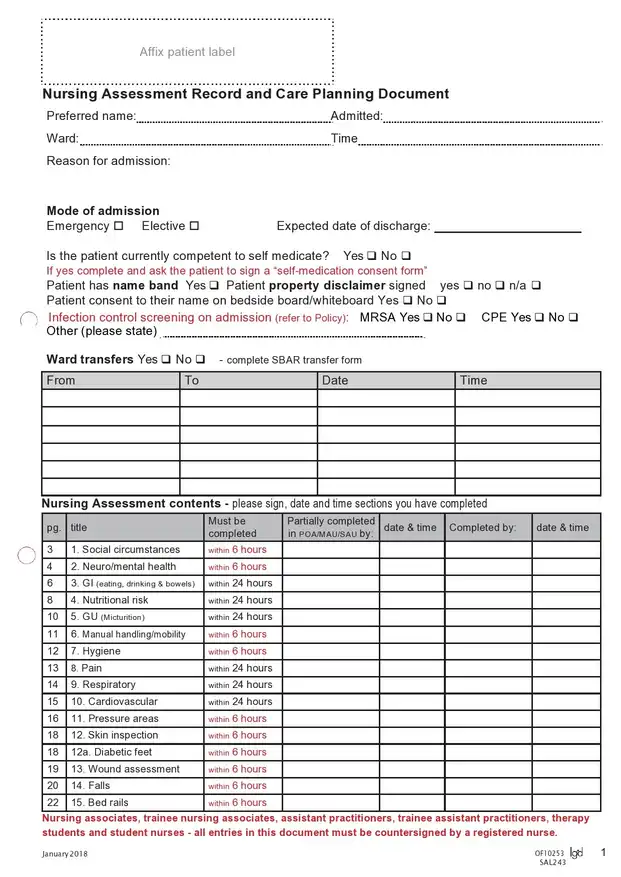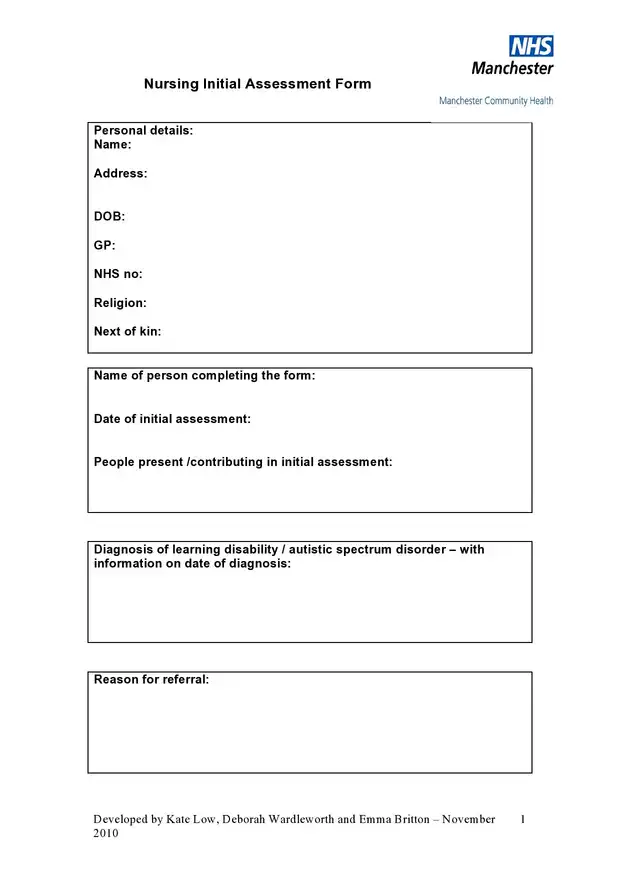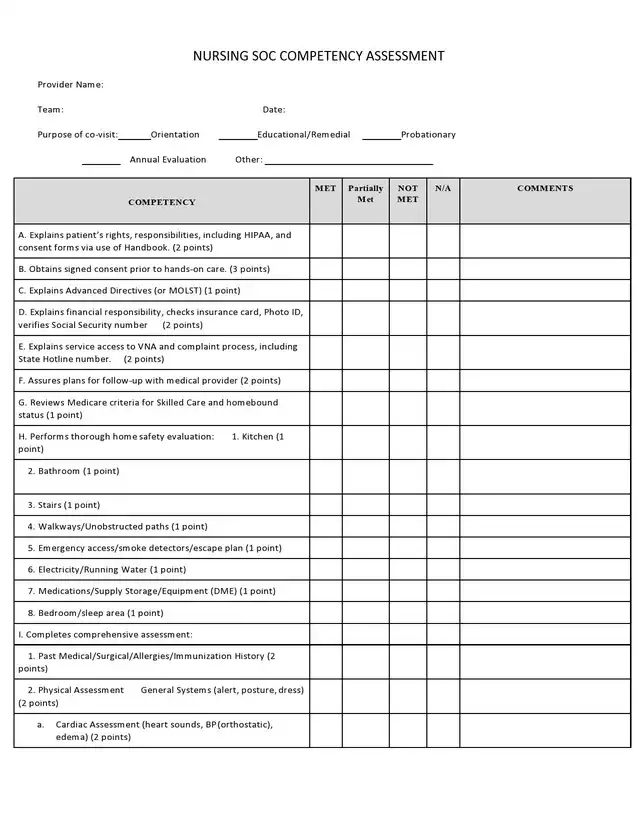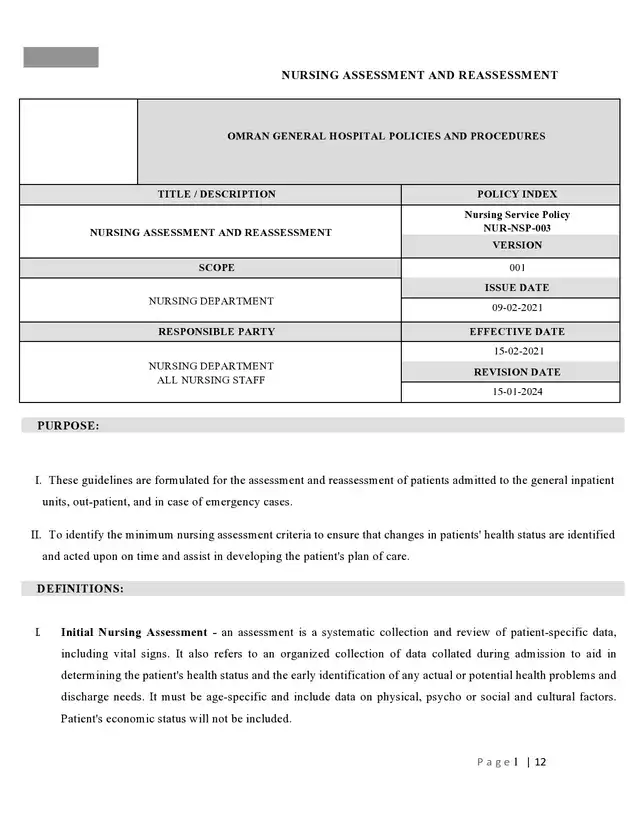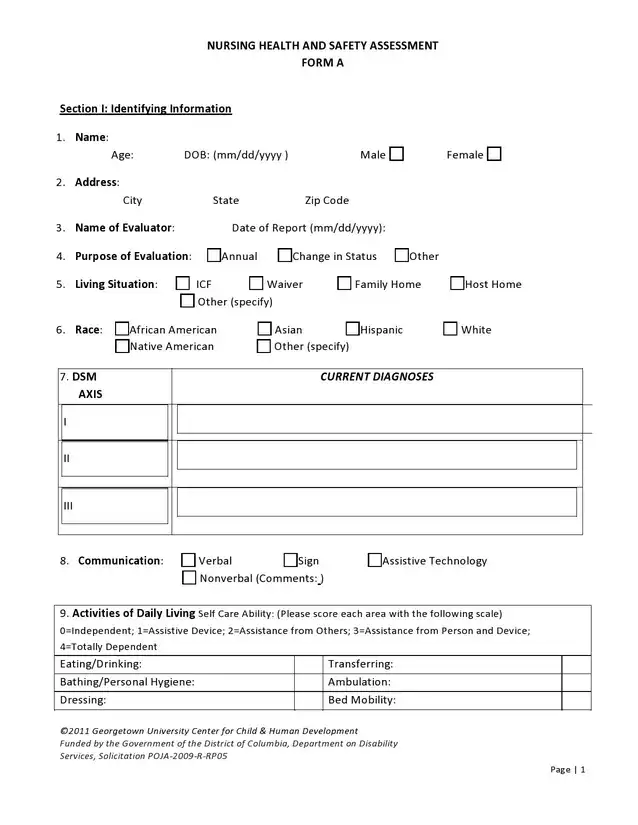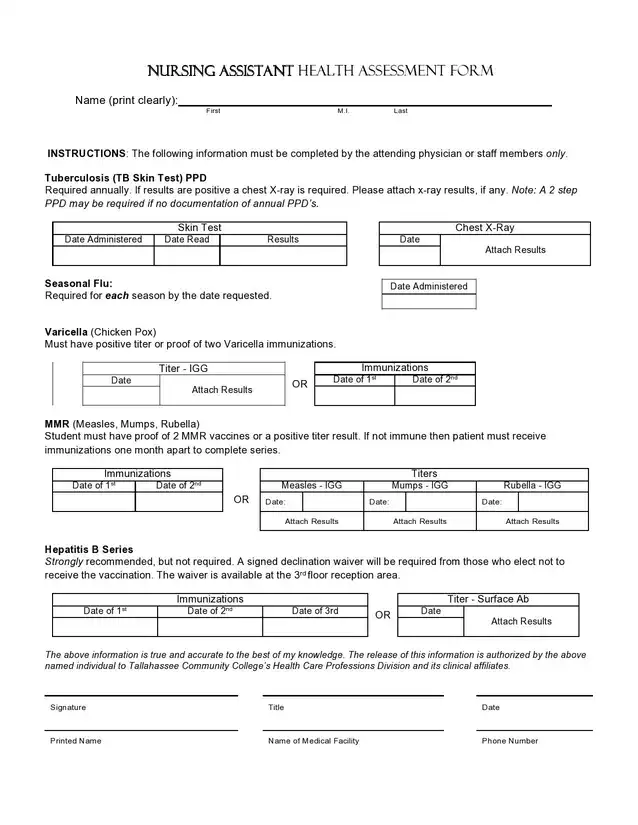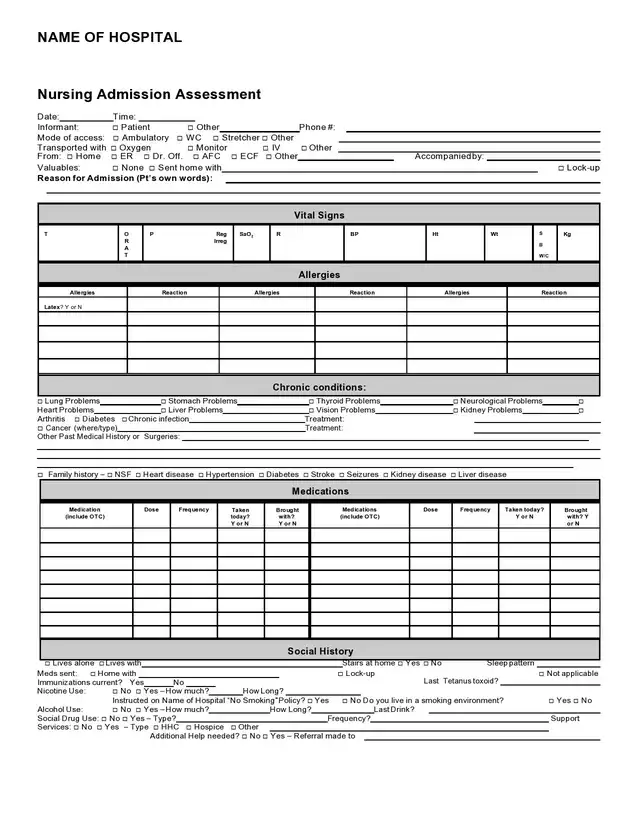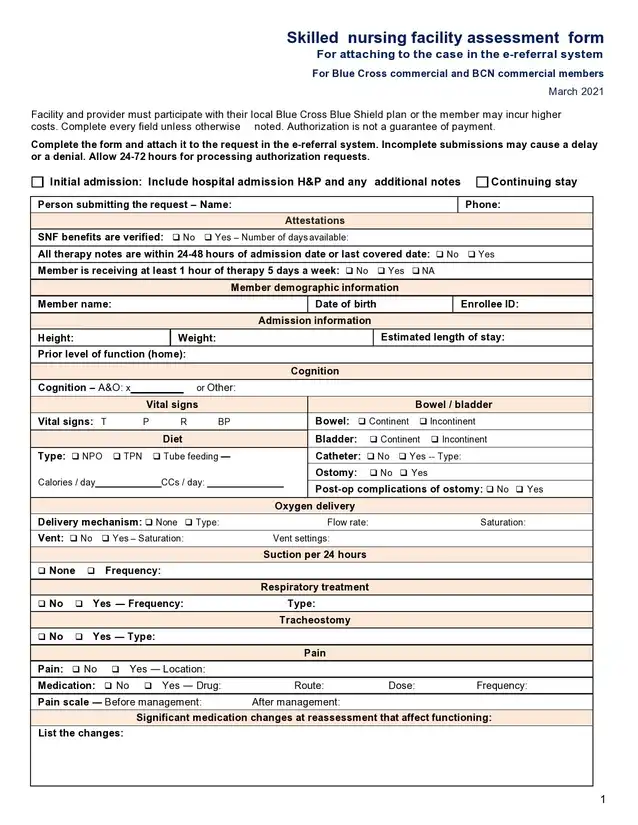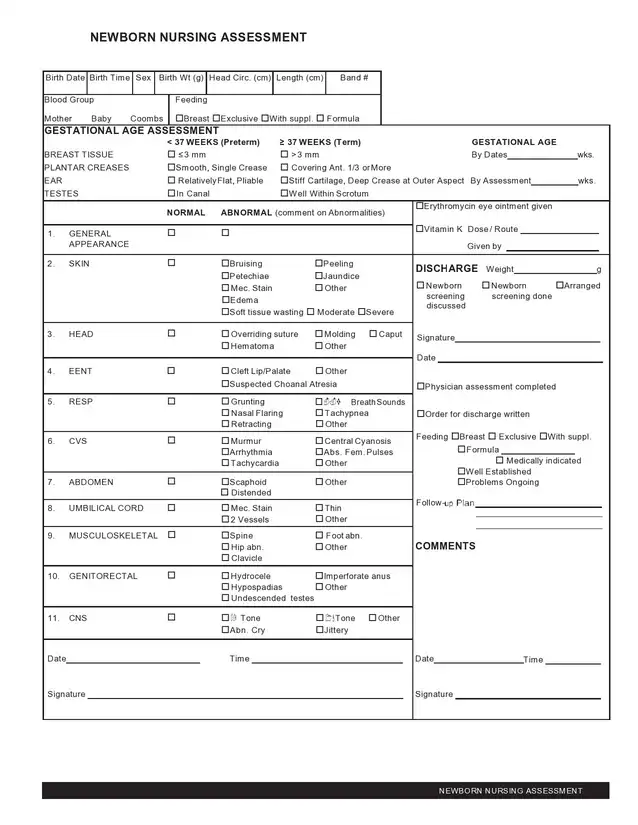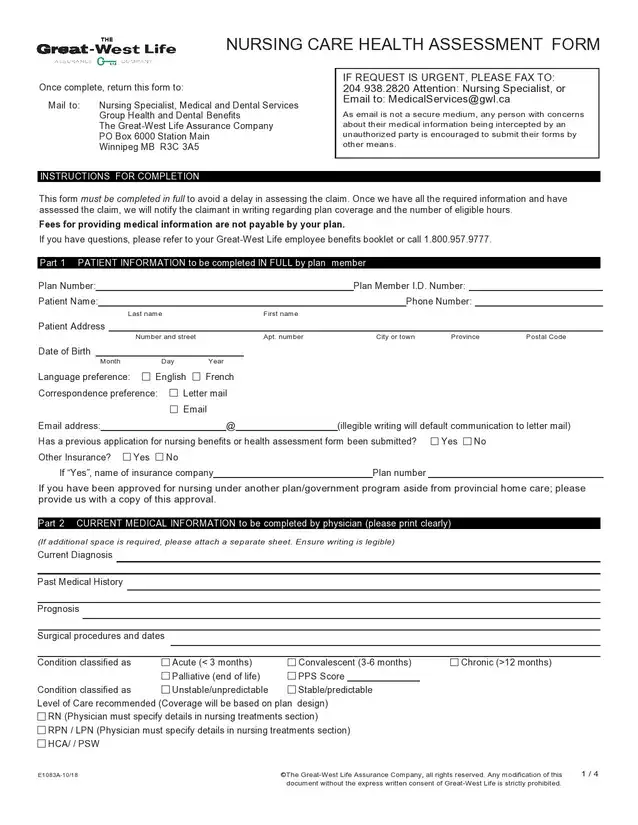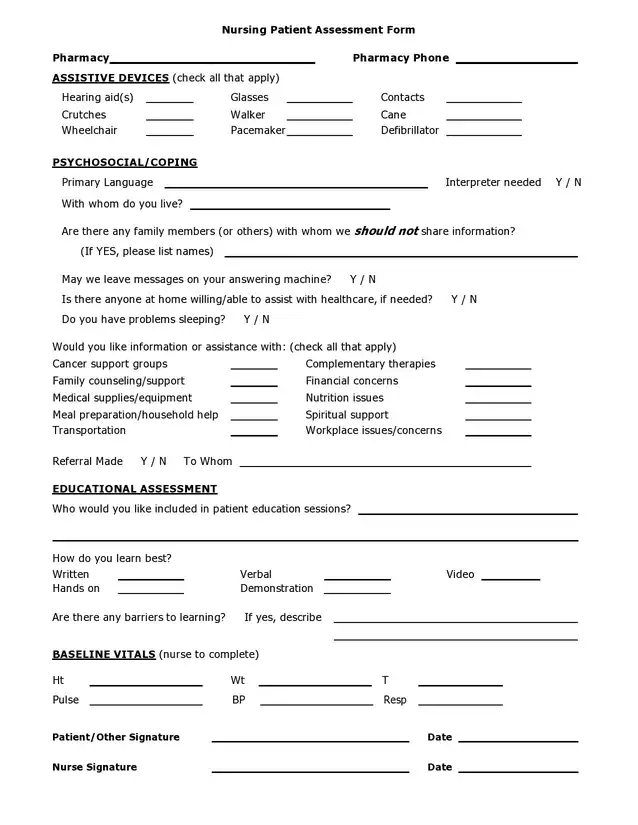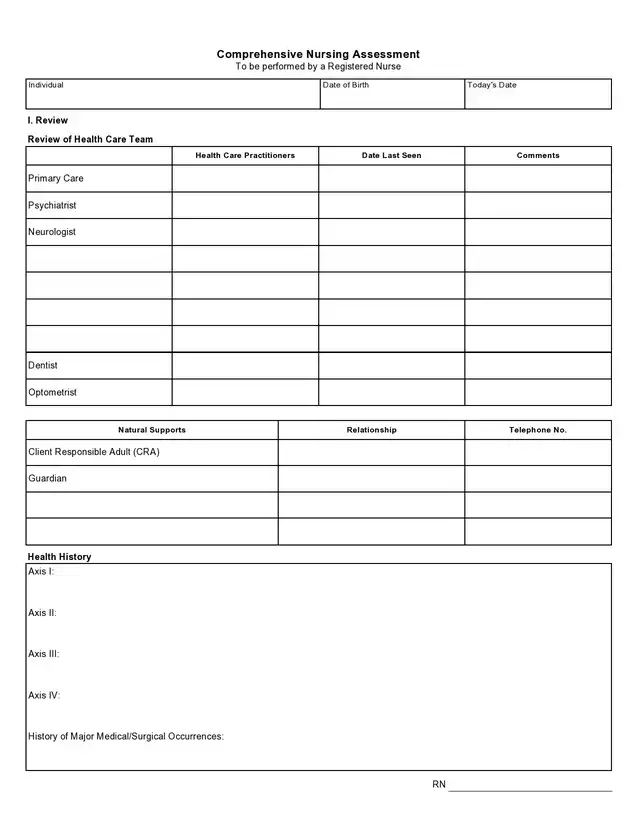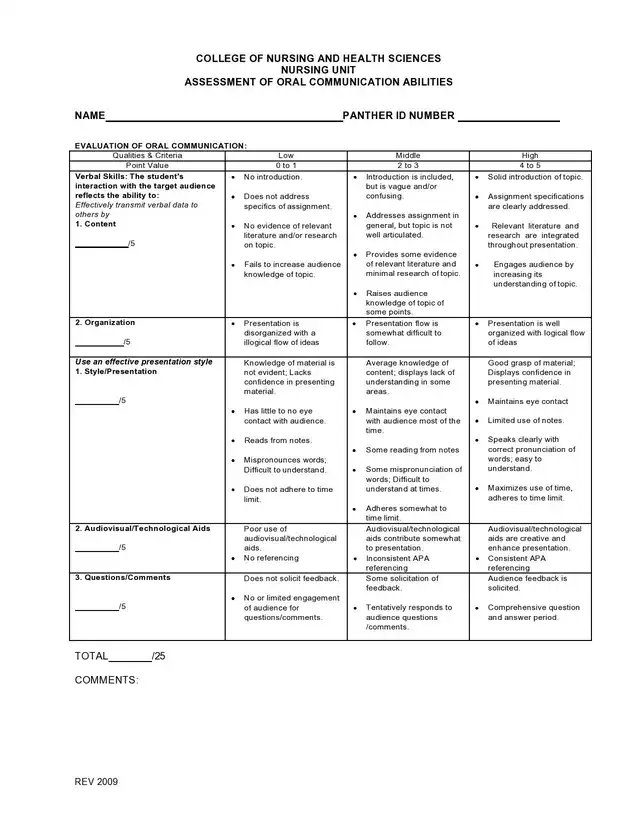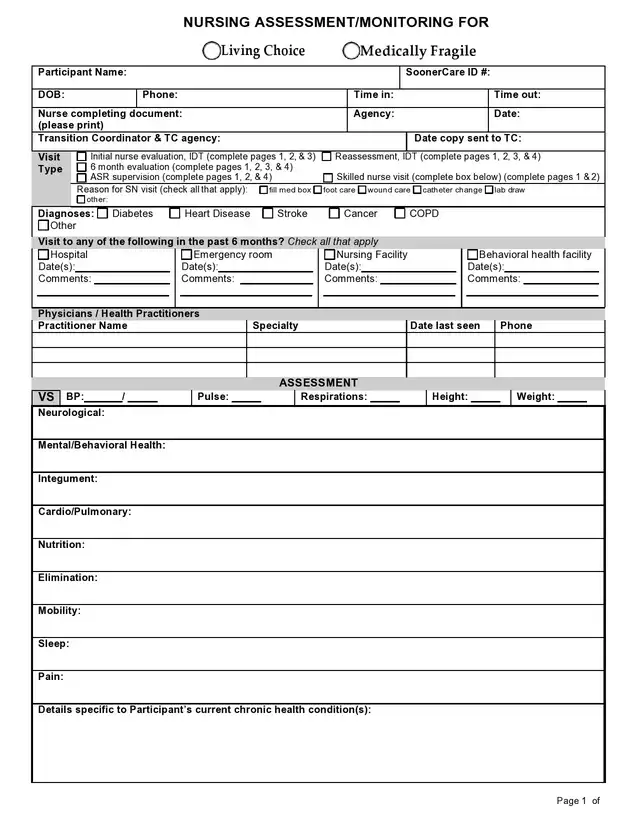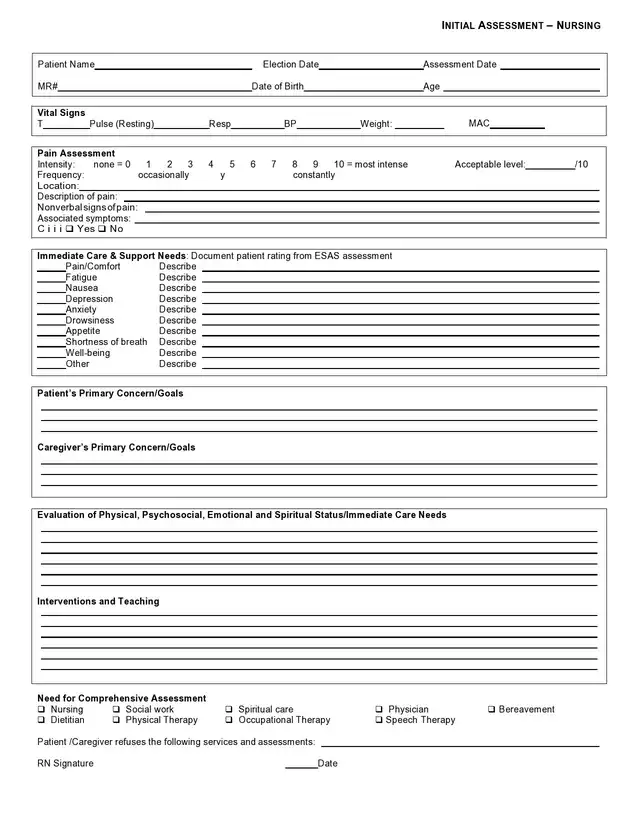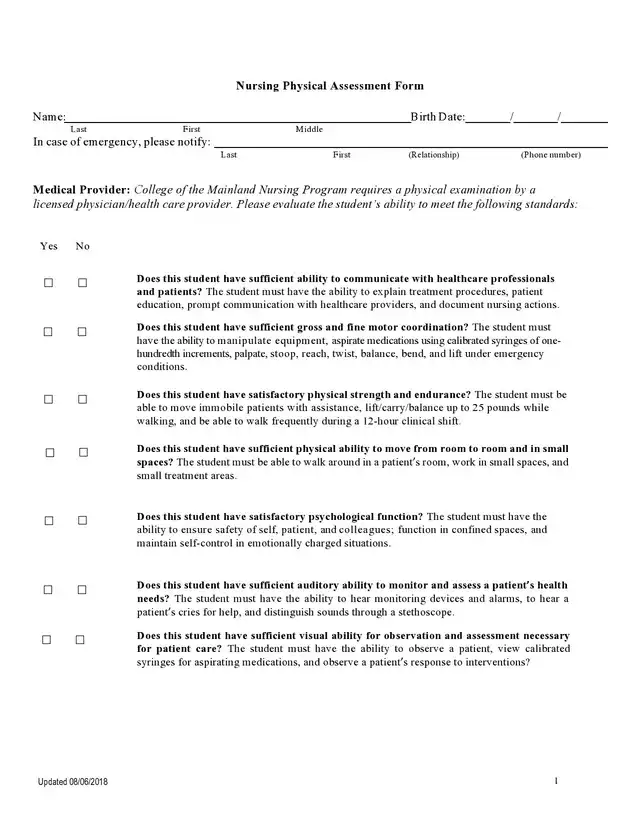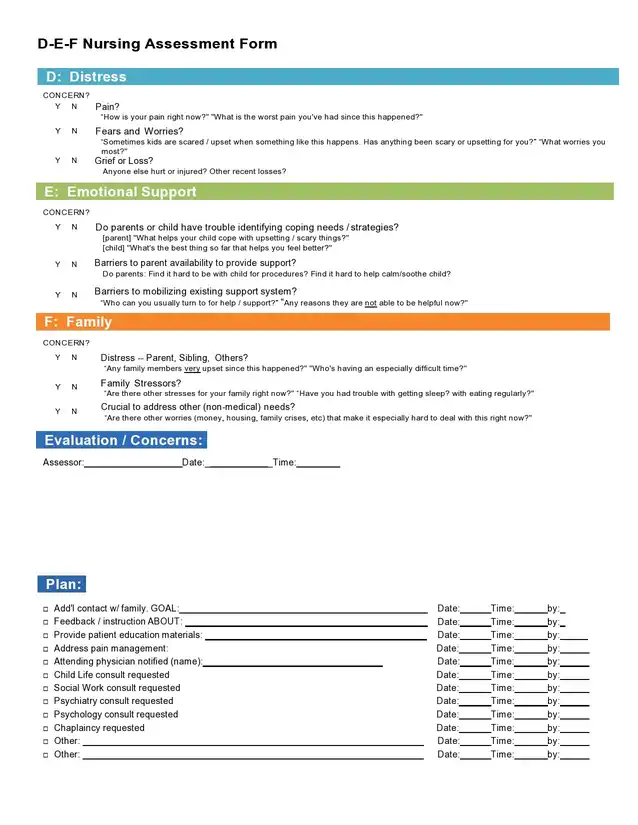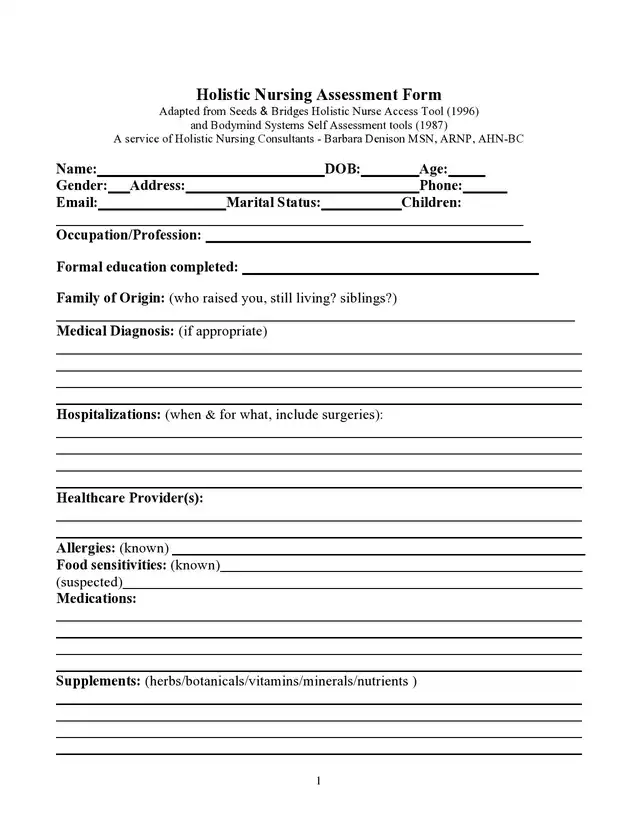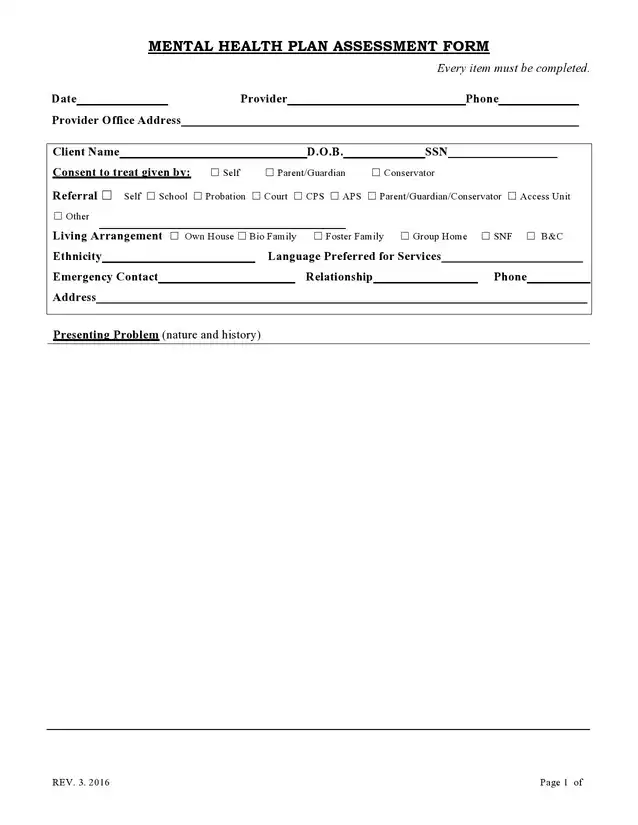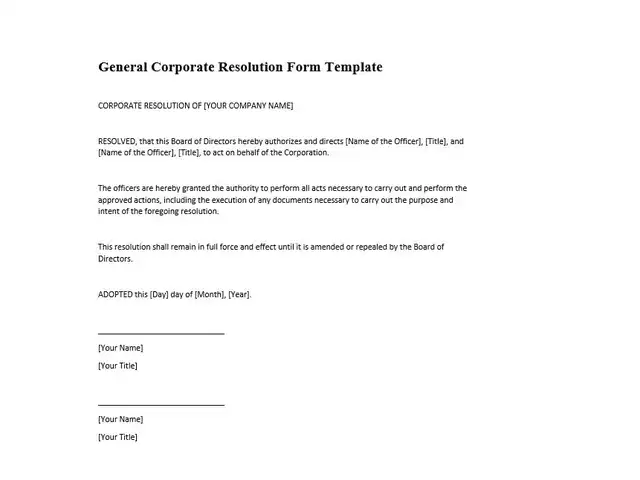Nursing assessments are critical in healthcare. They help nurses find out all about a patient’s health from the very first step. Using nursing assessment forms, how these forms are used to check a patient’s physical, mental, social, and spiritual health. We’ll explain why these forms are so helpful and give examples to make sure nurses can do their jobs well.
What is a Nursing Assessment?
A nursing assessment is a careful way that nurses use to learn about a patient’s health. They start by measuring simple things like how tall someone is, how much they weigh, their body temperature, blood pressure, how fast their heart is beating, and how they breathe. Then, they also look at how the patient is feeling and what they need for their social life. This first check-up is very important because it helps nurses plan what to do next to take good care of the patient.
Nursing Assessment Forms
Different Types of Nursing Assessment Forms
Nursing assessments help nurses determine what kind of care their patients need. Let’s examine the main types of nursing assessment forms and their uses.
Types of Nursing Assessment Forms
Initial Admission Assessment Form:
This form is filled out when a patient first comes to a hospital or clinic. It includes important information like the patient’s past health, current symptoms, and any medicines they’re taking. This helps nurses get a clear starting picture of the patient’s health.
Physical Assessment Form:
Nurses use this form to check each part of the patient’s body to ensure everything is working properly. It’s like a detailed list that helps nurses ensure they do not miss anything during the check-up.
Pain Assessment Form:
When a patient feels pain, this form helps nurses figure out where the pain is, how bad it is, and what might be causing it. Understanding pain is important for helping patients feel better.
Nutritional Assessment Form:
This form checks if the patient is eating well and getting the right nutrients. It’s important for patients who can’t eat enough or need diets.
Mental Health Assessment Form:
Mental health is just as important as physical health. This form helps nurses understand how patients are feeling inside, such as whether they are sad, worried, or having trouble thinking clearly.
Each nursing assessment form helps nurses take great care of their patients.
Why are Nursing Assessment Forms Important?
Nursing Assessment Forms are very important tools in hospitals and clinics. They are like detailed checklists that help nurses gather all the important health information about a patient.
Here is why these forms are helpful:
- Complete Care: These forms ensure that nurses don’t miss any important information. This helps them take better care of their patients by understanding their complete health needs.
- Saves Time: A structured form allows nurses to quickly fill out important details. This saves a lot of time because everything they need to check is already listed on the form.
- Better Communication: When all nurses use the same forms, they can easily understand what other nurses have noted.
- Making Decisions: The information on these forms helps doctors and nurses make important decisions about how to best care for the patient.
- Legal Record: These forms also act as a legal record of the care given to the patient.
Nursing Assessment Forms make sure that every part of a patient’s health is checked and recorded.
Nursing Assessment Example
What Information Do Nursing Assessment Forms Include?
These forms are filled with different sections, each asking for specific information about the patient. Here’s what these forms usually include:
Key sections of nursing assessment forms
Personal Information:
This part includes basic details like the patient’s name, age, date of birth, and contact information. It helps identify who the patient is.
Medical History:
Here, nurses write down any past illnesses, surgeries, or ongoing treatments that the patient has had. This helps nurses understand what health problems the patient might be at risk for.
Current Health Symptoms:
This section asks why the patient came to the hospital or clinic and includes questions about any pain or discomfort they are feeling right now.
Vital Signs:
This includes important measurements like temperature, blood pressure, heart rate, and respiratory rate. These signs show how well the patient’s body is functioning.
Physical Examination:
Nurses check different parts of the body to see if there is anything unusual. They look, listen, and feel to make sure everything is okay.
Mental Health Assessment:
This part checks how the patient is feeling emotionally and mentally. Nurses ask questions to understand if the patient is stressed, sad, or has other concerns that might affect their health.
Nutritional Status:
Nurses assess what the patient eats and drinks to see if they are getting enough nutrients to stay healthy.
Social and Environmental Information:
This includes details about where the patient lives, who lives with them, and their job. This helps nurses see if the patient’s living situation could be affecting their health.
Nursing Assessment Template
How to Write a Nursing Assessment
Writing a nursing assessment is an important job for nurses. It helps them collect all the information about a patient’s health. This guide will show you the steps to write a good nursing assessment.
Steps to write a nursing assessment
- Prepare the Form: Make sure you have the right form that matches the kind of health check you need to do. The form should have spaces for all the important details you need to gather.
- Gather Information: Talk to the patient and their family to learn about the patient’s health history and any current problems. Write down everything they tell you because every detail can help.
- Conduct the Physical Exam: Check the patient carefully from head to toe. Use tools like a stethoscope to listen to their heart and lungs, and make sure to note down anything unusual.
- Check Vital Signs: Record the patient’s temperature, heart rate, blood pressure, and how fast they are breathing. These numbers are very important signs of the patient’s health.
- Evaluate and Analyze: Look at all the information you’ve gathered to understand what it means for the patient’s health. This helps you figure out what to do next to help the patient.
- Document Clearly: Write down all the findings in the assessment form clearly and completely. This is important because other doctors and nurses will also read it to help care for the patient.
- Review and Update: Please keep the form updated if anything changes or if you learn more about the patient’s health. Keeping the form current helps provide the best care.
Writing a nursing assessment allows nurses to gather all the necessary information to help their patients as effectively as possible.
Free Printable Nursing Assessment Forms
Here’s an example of free printable nursing assessment forms:
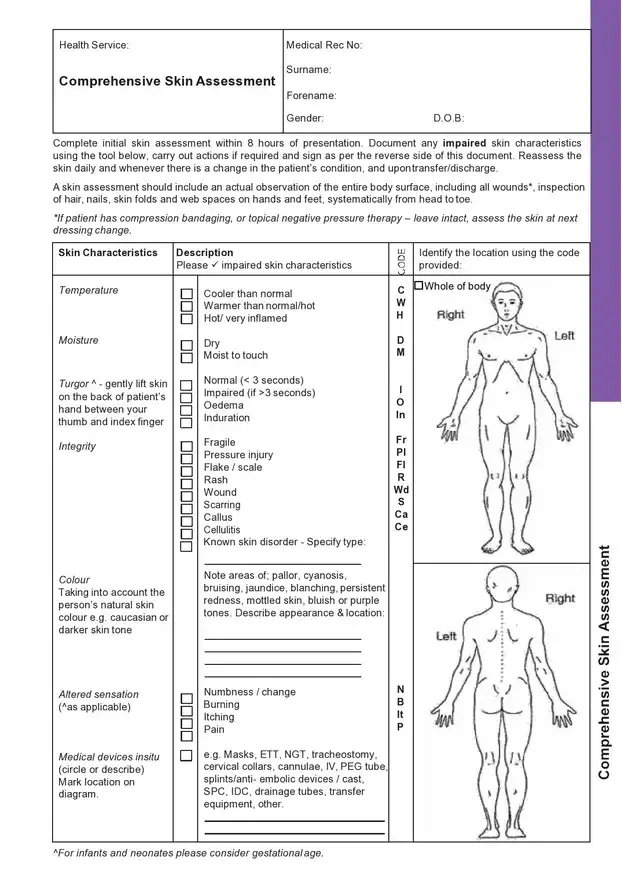
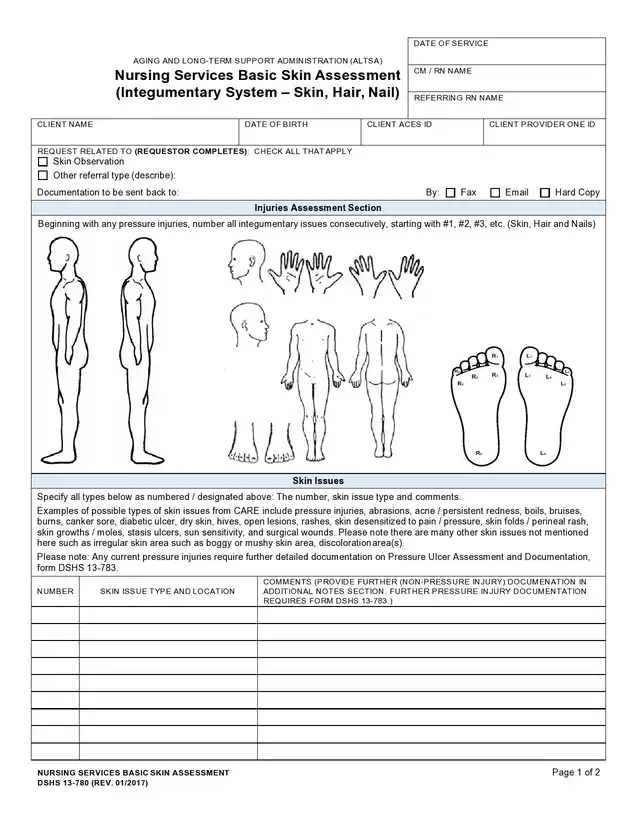
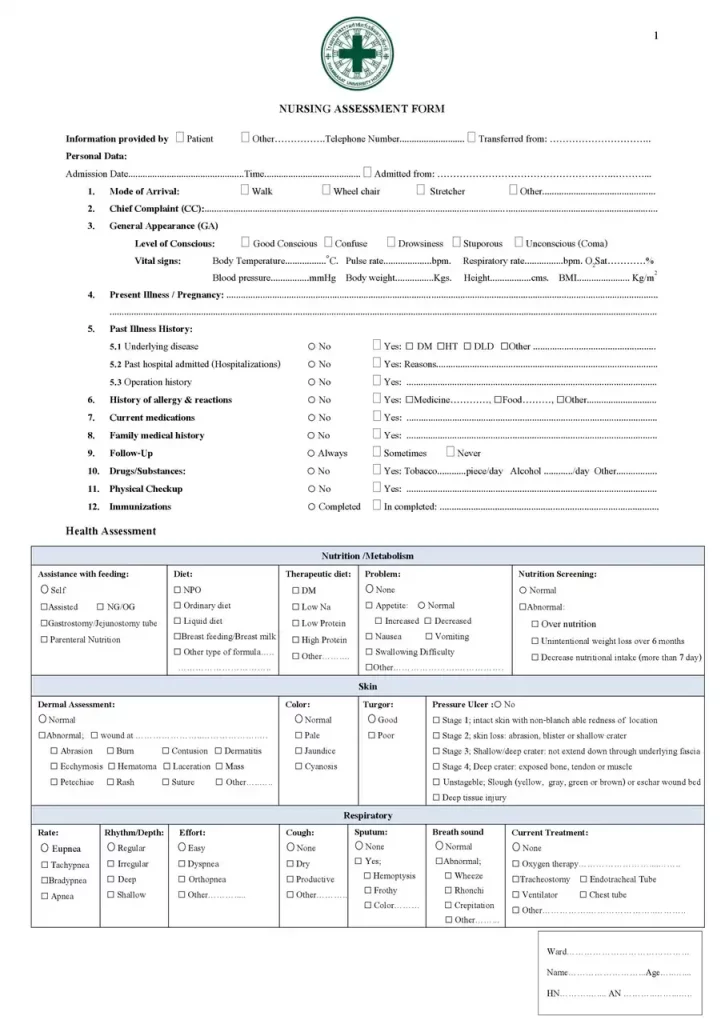
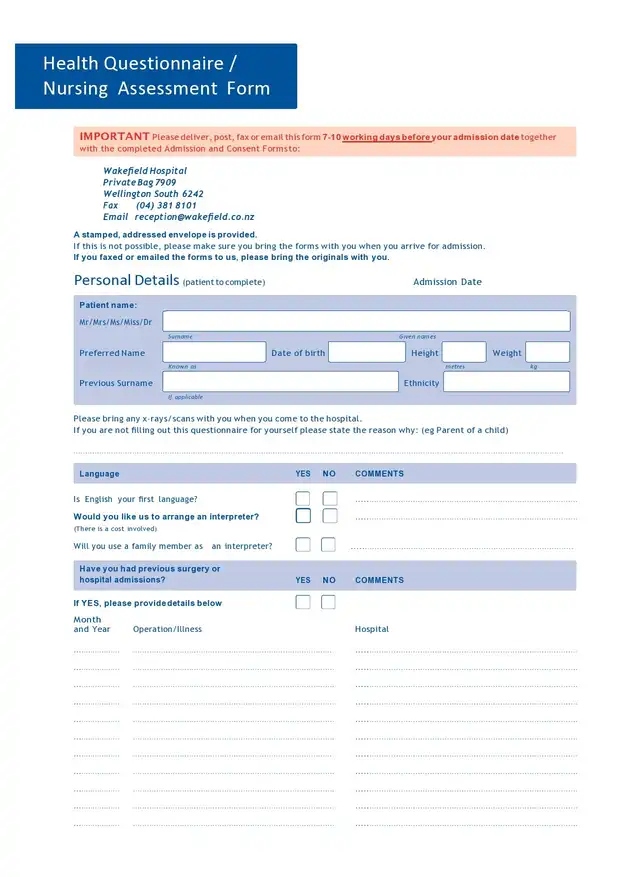
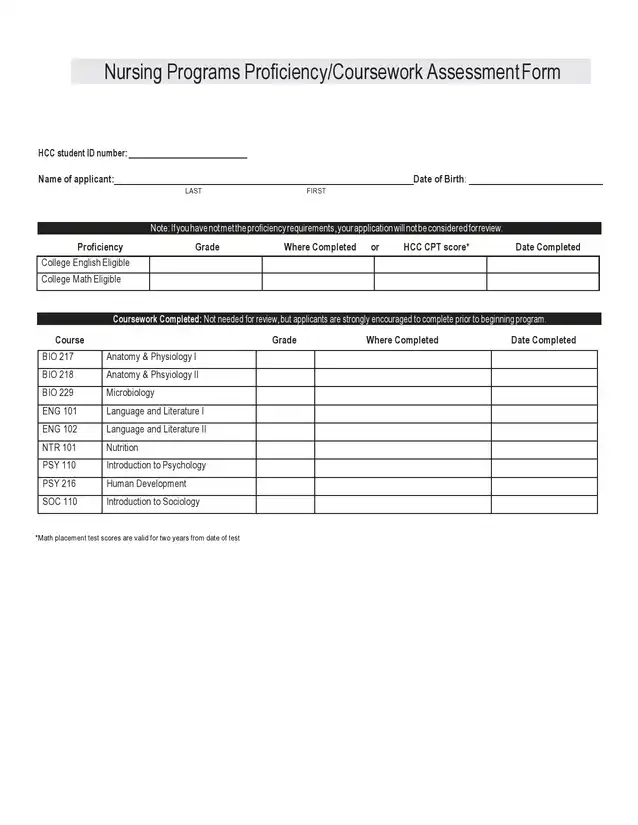
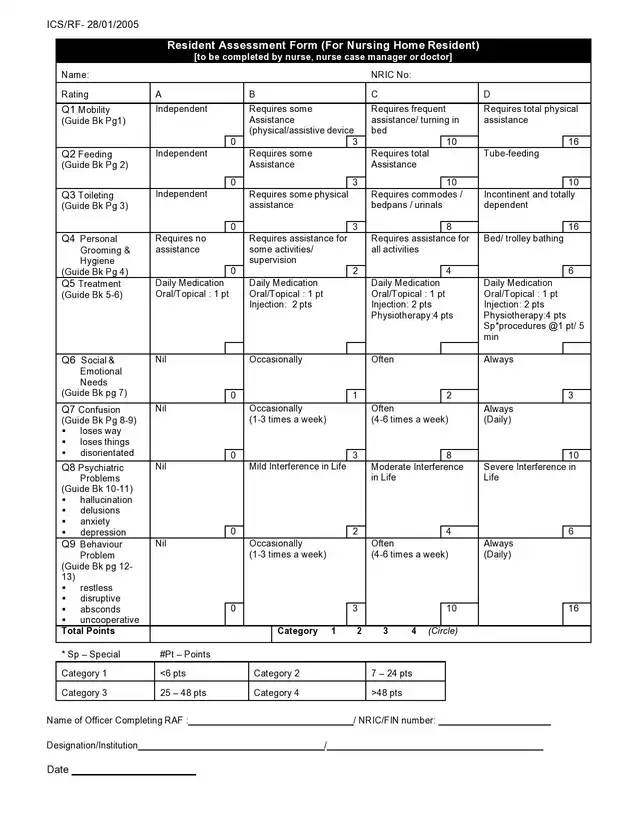
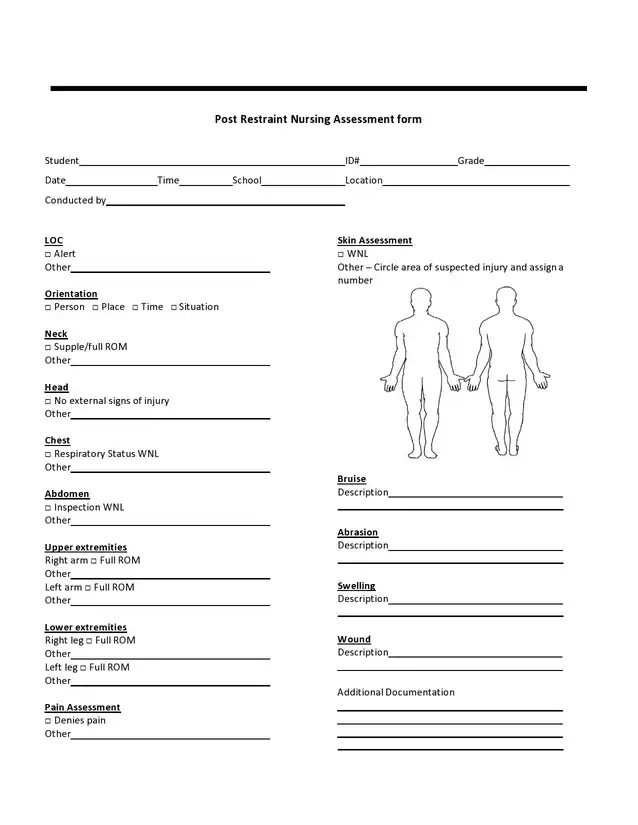
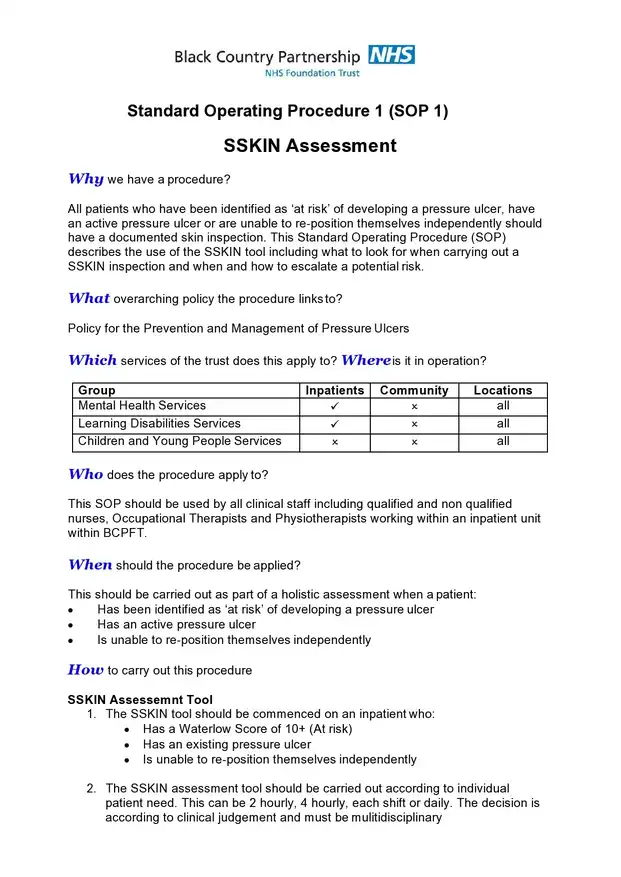
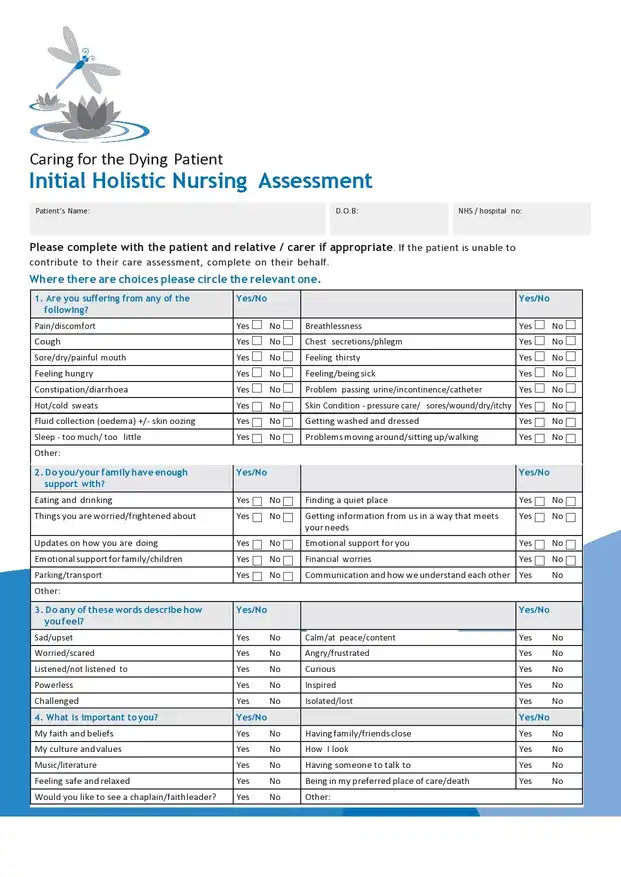
Importance of Nursing Assessments
When nurses meet patients, they need to gather a lot of information quickly and accurately. This helps them understand the patient’s health and what kind of care they might need. Here is why these assessments are so important.
Better Care for Patients
Nursing assessments help nurses learn about a patient’s health in detail. By asking questions and checking the patient, nurses find out what’s wrong and what the patient needs. This means each patient gets care that is just right for them, which helps them feel better faster.
Making Sure Everyone Works Together
In a hospital, many doctors and nurses need to work together to help a patient. Nursing assessments write down everything important about a patient’s health so all the doctors and nurses know what’s going on. This makes it easier for them to work as a team.
Stopping Problems Before They Start
When nurses check patients, they can sometimes find health problems before they get worse. This is really important because it means doctors can treat these problems early, which can make patients healthier in the long run.
Following the Rules
There are many rules in healthcare about how to take care of patients safely. Nursing assessments help nurses follow these rules by making sure they check everything they need to about a patient’s health. This keeps the car safe and good.
Helping Patients Understand Their Health
Nursing assessments also help patients learn about their health. Nurses explain what they find during their checks, which helps patients understand their bodies better. This is good because when patients know more about their health, they can help take care of themselves.
That’s why nurses need to do these assessments carefully every time they see a patient. This helps everyone stay healthy and safe.
How to Conduct a Nursing Assessment
Conducting a nursing assessment helps nurses determine the best way to care for each person. Let’s learn how nurses do these important checks!
Steps to Conduct a Nursing Assessment
Start with a Friendly Introduction
First, nurses introduce themselves with a smile. This helps patients feel comfortable. Nurses explain what they are going to do and why it’s important.
Gather Health History
Next, nurses ask about the patient’s health in the past and now. This includes asking about any sicknesses, surgeries, or medicines the patient is taking. Knowing the health history helps nurses understand what might be affecting the patient’s health today.
Check the Physical Health
Nurses then check the patient’s body to see how healthy they are. They look, listen, and feel different parts of the body to make sure everything is working right. They check things like how the heart beats, how the patient breathes, and if there is any pain.
Measure Vital Signs
Vital signs are super important numbers that show how the body is doing. Nurses measure the patient’s temperature, heart rate, blood pressure, and breathing rate. These numbers help tell if the patient is sick in a way that needs quick action.
Assess Mental and Emotional Health
Nurses also talk to patients to understand how they are feeling inside. They check if the patient is worried, sad, or having trouble thinking.
Document Everything Carefully
Every piece of information the nurse finds goes into the patient’s health record. This is very important because it helps all the other doctors and nurses know what’s going on. Writing everything down also helps if anyone needs to look back to see how the patient was doing before.
Build a Care Plan
With all this information, nurses help make a care plan. This plan tells everyone what kind of care the patient needs to get better. It’s like a roadmap to health!
Conducting a nursing assessment helps nurses take the best care of their patients.
FAQS
Can anyone use these forms?
These forms are mainly for professional nurses, but healthcare students and trainees can use them, too. They are great for learning how to care for patients and practising.
How do these forms help in patient care?
These forms make patient care better by organising all the health information clearly. This clear information helps nurses and doctors figure out what is wrong, plan treatments, and keep track of how the patient is doing.
Do I need special software to use these forms?
No, you don’t need any special software to use these forms. You can print them with any regular printer and fill them out by hand, making them easy for anyone in a healthcare setting to use.
How often should the information on these forms be updated?
You should update the information on these forms any time the patient’s health changes or new medical details are found. Keeping the forms up to date ensures that the health information is accurate and current, which is very important for good patient care.
Can these forms be customised?
Yes, you can customise these forms to meet the specific needs of different healthcare settings. Many hospitals and clinics change the forms a little to make sure they fit the kind of care they provide. This customisation helps make the forms even more useful for nurses and doctors.
Nursing assessments are integral to the effective management of patient care in healthcare settings. By utilising various assessment forms, nurses can ensure comprehensive care that addresses all aspects of a patient’s well-being.
How often should the information on these forms be updated?
Regular updates and training on the use of these forms are essential for maintaining healthcare providers’ competence and effectiveness. Armed with thorough assessments, healthcare professionals can significantly enhance patient outcomes and satisfaction.
Free printable nursing assessment forms are critical tools for nurses. They help ensure that nurses look at every part of a patient’s health, which is very important for planning the best care. These forms make it easier for nurses to keep track of important health information, helping them give the best care possible. With these forms, nurses can work better and faster, leading to happier and healthier patients.

The content creator team at calipsotree.com is dedicated to making topics accessible to everyone, with over 9 years of experience in writing and breaking down complex concepts into easy-to-understand articles that answer readers’ financial questions.






